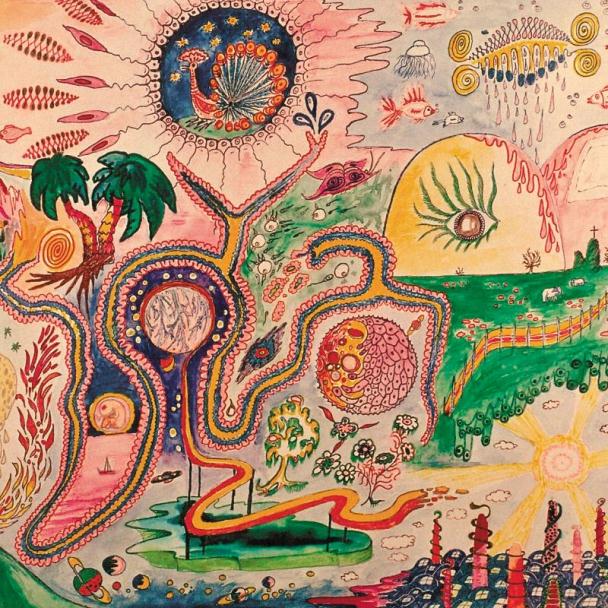There’s an old saying that the places we’ve never known are the ones we miss the most, a feeling that Youth Lagoon was certainly plugged into on The Year of Hibernation. Listening to the debut album from Trevor Powers’ solo musical project was almost like watching home movies from his youth. Operating with the underlying suspicion that our memories and our pasts can be distinct sets of facts, it was candid but deceptively deep terrain for a 22-year-old. Composed with cutting sincerity, only a hardened cynic couldn’t find something poignant within his life story.
But on Wondrous Bughouse, Trevor Powers is no longer a storyteller, he’s a witness to the breadth of the human experience. Bughouse is an attempt to connect all of these dots, and each of its songs offer a different starting point. Powers’ songs are still grainy, but they no longer sound like they were recorded in a shack. What was once unobtrusive is now loud and colourful. Apart from the soapy keyboards, none of this sounds like Youth Lagoon as we knew it. Equipped with psychedelia, freak-folk, and the drowsy eccentricity of acts like Clinic, Powers’ aspirations are a good deal loftier, sonically and compositionally. Tracks like “Mute” and “Dropla” are comprised of chapters, one musical idea that ebbs into the next, and at the end they form a full story. Other are snapshots, windows through which we can glimpse as states of mind that are likely foreign to us.
Much of Bughouse deals with mental and physical disease. And as is often the case with illness, it’s not always comfortable or pleasant. There are times where it feels like Powers is giving us a tour of a hospital, using his music as a means to put us in the skin of its patients. “Attic Doctor” is a queasy waltz, medically graphic in the same way that Hospice was: “’I won’t die easily’/That’s what you said after you watched the disease spread/The doctor conceals her grin/To tell us you couldn’t have babies.”
This pattern intensifies as Wondrous Bughouse progresses. “Pelican Man” depicts psychosis with a disconcerting degree of detail over coarse pianos and spring-loaded percussion. Album highlight “Raspberry Cane” focuses on stage 5 of the grieving process, up-tempo but lost in the gloom. “Pour the ashes into the cup/Mix with water/Here’s to death/Drink up,” Powers laments. Last comes “Daisyphobia,” a comedown from the psychotropic whirl. Powers yells from the bottom of a canyon, drawing from Animal Collective’s “Cuckoo Cuckoo” before swapping out for “Subterranean Homesick Alien.”
With such an all-encompassing narrative, Bughouse is nowhere near as intimate as Hibernation; “The Bath,” a tiny song that rattles around in wide spaces, is the lone exception. It’s probably also about 7 or 8 minutes too long, with a few songs (“Sleep Paralysis,” “Third Dystopia”) wandering and edging on repetitious. But while it appeals for better editing, Wondrous Bughouse is also thought-provoking on a grand scale.
Oftentimes, Powers renders truths that are so pervasive and axiomatic that if they were brought up in everyday conversation they would likely seem mundane. The first words that leave his mouth are “Living in a 3-D world where the clock is in control.” It’s kind of a roundabout way to say that spacetime exists, but taking pause to think about what a majestic notion Powers is touching on is its own reward. Wondrous Bughouse takes a moment to stare in awe at the marvelous, moribund nature of life, and it occasionally invites us to do the same. If The Year of Hibernation was childhood nostalgia, this is existentialist pubescence.

